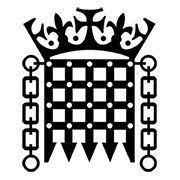Cowper’s Cut 365: Accentuate the positive; don’t mess with Mr In-Between!

“You’ve got to accentuate the positive
Don’t mess with Mr In-Between!”

Well, I saw the impermanence of NHS England’s chief executive Amanda Pritchard’s tenure in charge of Amandaland before anybody else did. But I did not foresee that she would jump the gun by defenestrating herself.
The irony of The Woman In Black ghosting herself is telling.
A few things ought to be put straight: Mrs Pritchard’s departure is much less amicable than it is generally being portrayed. Her brief valedictory name-check from PM Sir Keir Starmer at this week’s PMQs was an attempt to lower the temperature.
A quick skim of the ever-lengthening list of tributes on her valedictory announcement portrayed a parade of such triumphs that would be enough to make a person wonder why Mr Streeting did not refuse her resignation. They repay careful reading, however: some are exceptionally carefully-worded; many are boilerplate and overweight on the pandemic which was basically over by the start of her tenure as NHSE’s chief executive; and a few are just hyperbolic.
The opening paragraph of The Woman In Black’s resignation letter to Health Secretary Wes Streeting gives the clearest view of the root cause: “we have discussed for some time that radical reform of the size and functions of NHS England and the DHSC is needed to best support local NHS systems and providers to deliver for patients and drive the Government’s reform priorities, which you know I share. Having put in place the foundations for a closer working relationship, I believe that the step change now required would be best served by new leadership in NHS England.”
Mr Streeting and The Woman In Black have indeed discussed this reform at some length: they have not, however, agreed at all on how it should happen. Mrs Pritchard emphasises that she shares the Government’s reform priorities, but it is fairly well known that she disagrees with the proposals for Mr Streeting to even more explicitly be the chief executive figure overall. Her discomfort in the ‘hostage video’ important announcement briefings to the service led by Mr Streeting has been palpable.
The opening paragraph of Mr Streeting’s reply delivers the purest of damnation with faint praise: “it is with mixed emotions that I accept your resignation as Chief Executive of NHS England. Since my appointment, you have been extremely supportive of me and this Government’s reform agenda. You have never given less than 100 per cent to your role and I have enjoyed working with you very much.”
Ouch. Particularly the ‘never given less than 100%’ bit. I don’t think Mrs Pritchard has been the leader that the NHS needed, but for Mr Streeting to be emphasising that ‘you tried very hard’ in this way is somewhat ungenerous of him in this absolute victory.
Let’s be clear that this is just that. It is widely known that Mr Streeting did not want Mrs Pritchard to stay. This is why he so repeatedly manifested his dominant position in the hierarchy. He just wasn’t quite yet ready to get rid of her: by reading the writing on the wall and choosing the time of her departure, The Woman In Black outed the fact that there is not yet a consensus in Team Streeting on whether NHS England could safely be entrusted to the leadership of a ‘big beast’, or must be kept firmly and fully under their thumb.
There are some big mixed signals around this.

Firstly, as Health Service Journal reported this week, Mr Streeting wants his very own ‘Delivery Unit’ “to hold NHS England and other partners to account on performance for delivering on priorities ... (it) will be small, agile, and high performing, and made up of internal and external recruits.”
The role will also involve “tracking and challenging delivery of the secretary of state’s priorities, [and] investigating and intervening proactively to solve delivery challenges, enabling ministers to understand progress on priorities, issues, and risks affecting delivery and how to address them”, and “bringing the department and its arm’s length bodies (particularly NHSE) together” and building departmental capability to help deliver the 10-Year Health Plan.
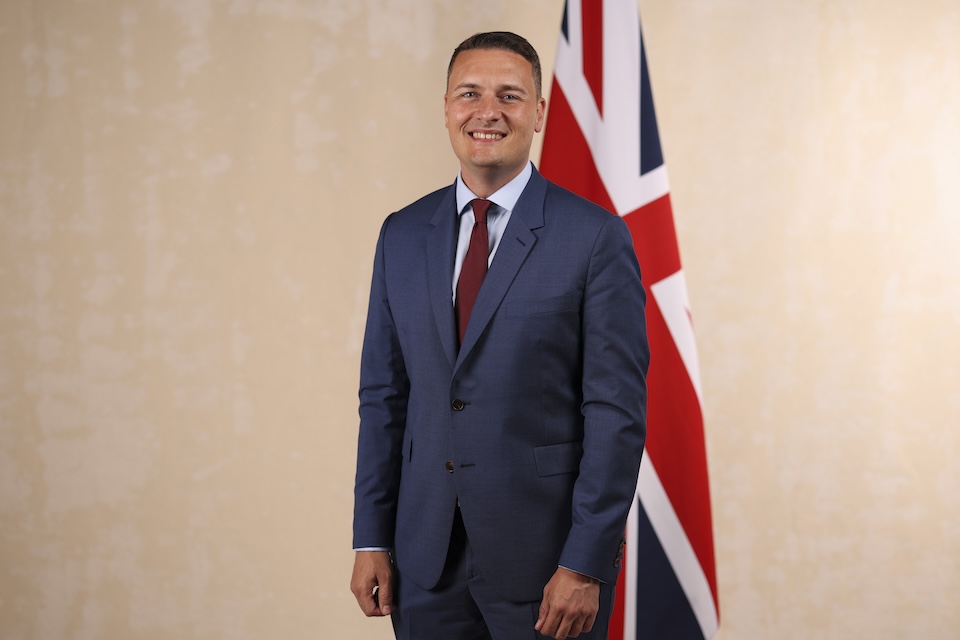
This is not very decentralising, yet we are not long on from Mr Streeting’s November 2024 speech to NHS Providers which criticised the NHS as absurdly over-centralised. For example: “the framework I’m setting out today is based on triple devolution: with power shifting out of the centre to integrated care boards (ICBs), to providers and, crucially, to patients. I want to lead an NHS where power is moved from the centre to the local and from the local to the citizen. Morrison meets Bevan … And the centre should be smaller.
“As power flows from the centre over time, resources should flow with it. Otherwise it will keep swamping local services with diktats and demands that distract them from the job of meeting patients’ needs and improving the communities they serve …
“Amanda set out yesterday that NHS England, not ICBs, will be responsible for managing performance of trusts. When I talk to ICB leaders I hear mixed views about where they should be focusing their efforts. There is no uniformity and too much confusion.
So let me be clear: I want to see local commissioning back and I want to see ICBs leading it. ICB chiefs, I am talking directly to you: you will lead the transformation of care - the pioneers of reform.”
The potential redundancy of an NHS England which is managing trusts’ performance in an era of a potentially powerful new Team Streeting Delivery Unit is not hard to see.
The Mackey Supremacy?
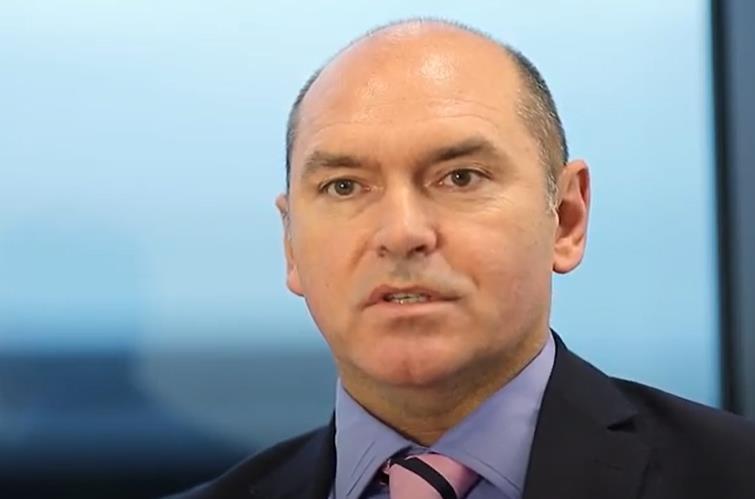
Until the end of March, The Woman In Black will have an uneasy job-share with NHS Improvement’s former interim chief executive, and the successful boss of first Northumbria Healthcare and latterly Newcastle Hospitals Sir James Mackey. He is expected to stay on in this interim post for one to two years.
This is a remarkable decision, on all sides. Because we have been here before. And probably the worst-kept secret about Sir James’ previous tenure in the national leadership role at NHSI was quite how much he hated his experience of doing a national job.
He hated it A Lot.
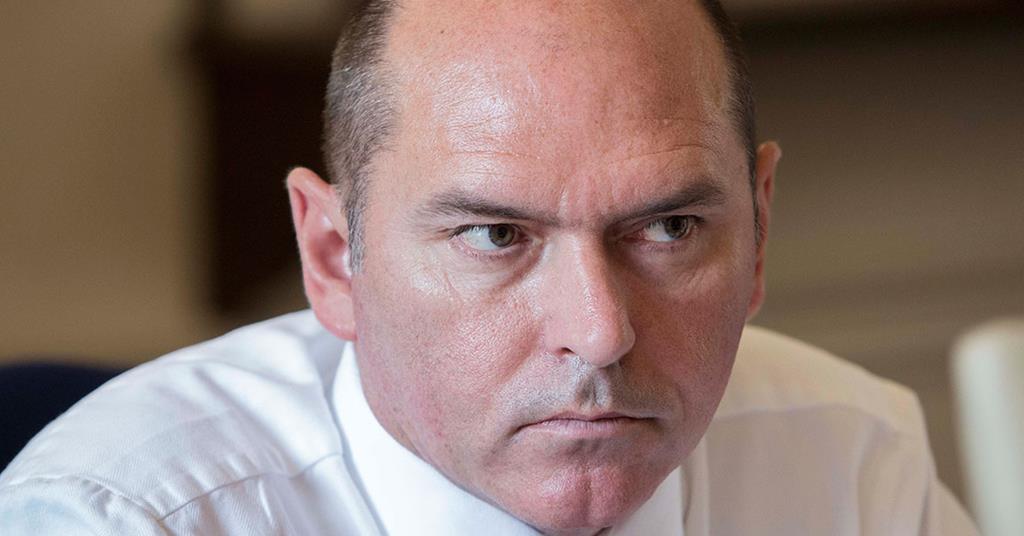
He hated it so much that he even insisted on its being made clear that it was a temporary secondment.
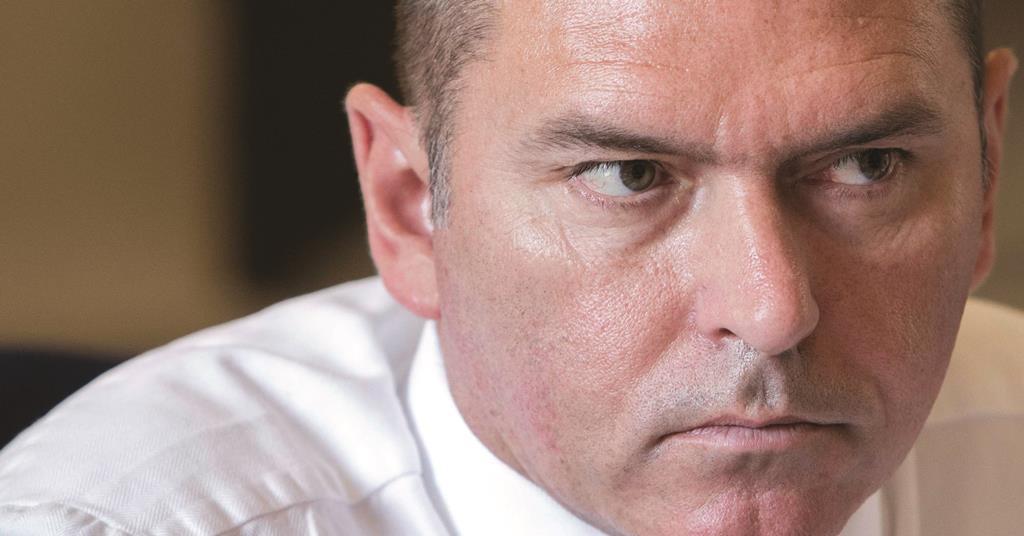
Those with long memories will recall Sir James’ pledge to the Healthcare Financial Managers Association that providers would be required to get back into financial balance by 2016-17. So did that happen, in The Real World? You’ll have to ask the capital-to-revenue transfers.
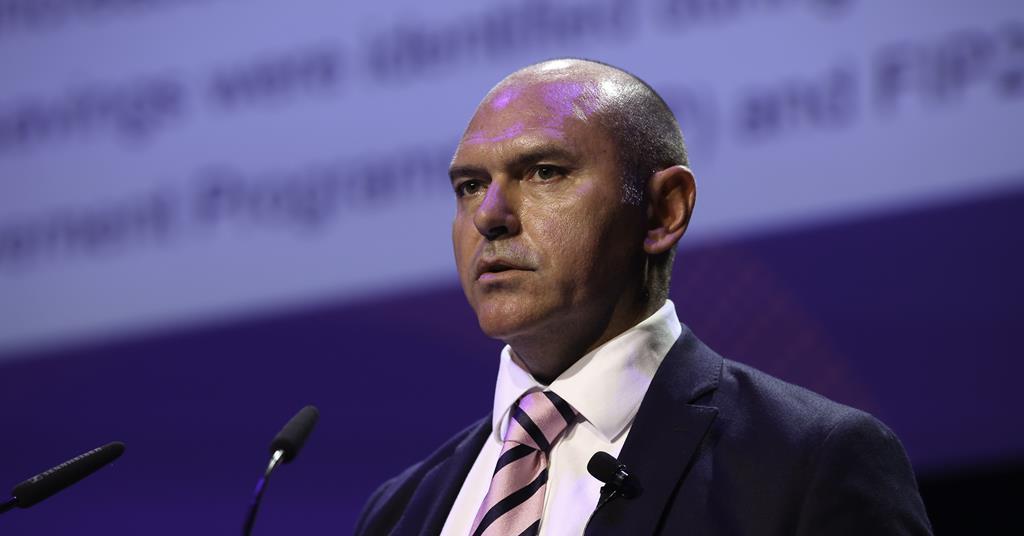
It is also worth reading what he wrote for HSJ in 2018 about the pointlessness of arguing that the NHS should have got a better settlement for its 75th “Birthday” (retch) present; and likewise his words at an on-the-record HSJ event in 2022.

Sir James (who was at that time NHSE’s elective recovery director) said that confusion over which emergency care targets the NHS was operating to was a significant contributor to the accountability gap.
“We’ve lost the consumer offer in the blurring out of the ED standards. It’s our biggest worry. They never actually bought and signed off Steve (Powis, NHSE medical director)’s proposals because there wasn’t a retail offer”, adding that this “failure” to have clear standards that the NHS was held accountable to would “over time” undermine public and political faith in the service.
“There need to be some guide-rails again. Is it four hours? Is it four hours just for the sickest patients? We just need to work it out. Because at the minute it [the goal] is just to be slightly better than the person next door. It’s not good enough.”
Asked what the NHS should do in the face of government inaction, Sir Jim said: “Why don’t a group of us get together and agree this is the standard? Because it would be better than the crap we’re doing at the minute”.
Sir James was also caught up in the morass of speculation about who would become NHS England’s next chief executive after Simon Stevens.
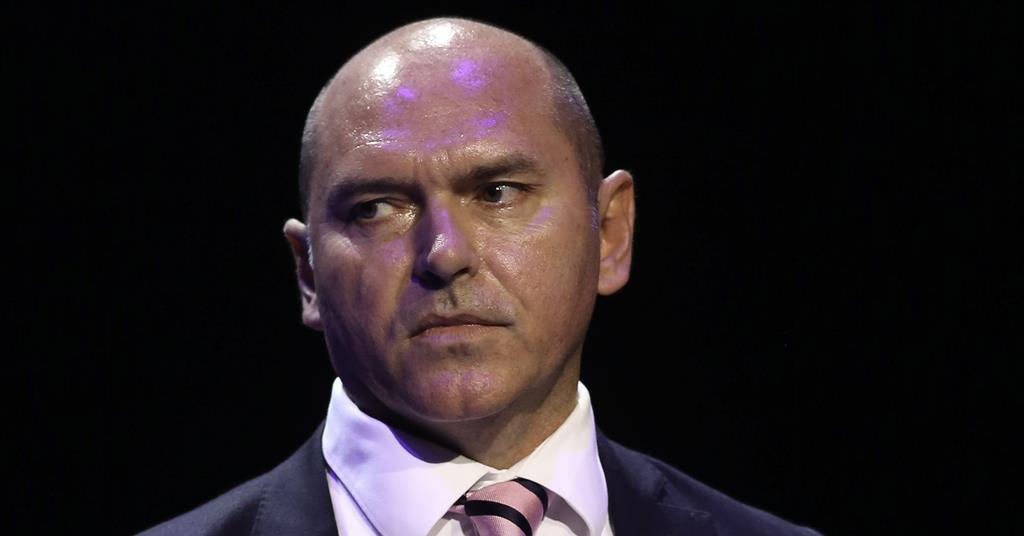
That got particularly interesting, when it was announced that both he and Everybody’s Original Favourite Noble Baroness, Test And Trace boss and then-NHSI chair Dido Harding had not been shortlisted.
The reason this was interesting was that I’m reliably informed that only one of those two individuals had actually applied for the job - and that was The Noble Baroness Harding Of Winscombe.
What’s changed since then?
What matters of substance are genuinely different now, such that Sir James is likely to loathe the national job less?
Among Sir James’ frustrations in his tenure at NHSI was the political power dynamics during the imperial phase of Simon Stevens’ tenure at NHS England. For ‘Simon Stevens in 2015’, just read ‘Wes Streeting in 2025’: now, as then, there is one unambiguously clear primus inter pares, who will not be challenged.
There is also the matter of over-shoulder-gazing, in the event that Team Streeting do in fact decide that they fancy the political air cover on offer from a ‘big beast’ figure to run - or blame for - NHS England.
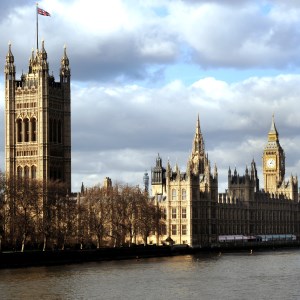
In her confirmation hearing this week with the Commons Health But Social Care Select Committee, NHS England’s new chair-designate Dr Penny Dash seemed to already have a pretty clear person spec for the person whom she’d like to appoint: a chief executive “who shares the passion and commitment for change – because otherwise that will be quite hard to do.
“I would look for someone who has some of the insights, has the experience and the expertise and the knowledge… I’d be looking for someone who is very comfortable with data and analysis, particularly around topics of quality and productivity.
“I would be looking for someone who has got a good sense of what is going on in the wider world [for example] some of the things around tech are big, they are potentially massive opportunities, so that ability to look out as well as to look in is crucial.
“And, final bit, by no means the last, is someone who can work very well with people.”
It’s a good answer: it’s also remarkably detailed. Dr Dash has evidently given this matter significant thought. Which makes it by no means impossible that she already has an individual in mind.
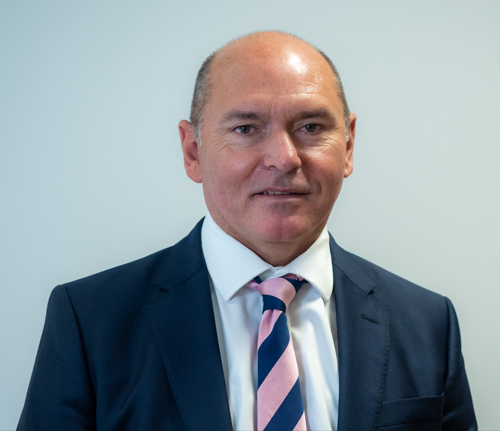
Sir Jim Mackey could not be more emphatic that he is only an interim appointment as the boss, right down to telling his current trust “I look forward to returning to the Newcastle Hospitals before too long”.
He sounds absolutely thrilled about being Mr In-Between, doesn’t he? At least nobody will be able to claim that they haven’t been thoroughly warned.
Misunderstandings
Not many of the Amandaland obituary or Jim Mackey profile pieces were much good. Two of the more interesting pieces in response to the change of leader came from usually excellent journalists, both of whom made at least one major fallacy of interpretation in their arguments.
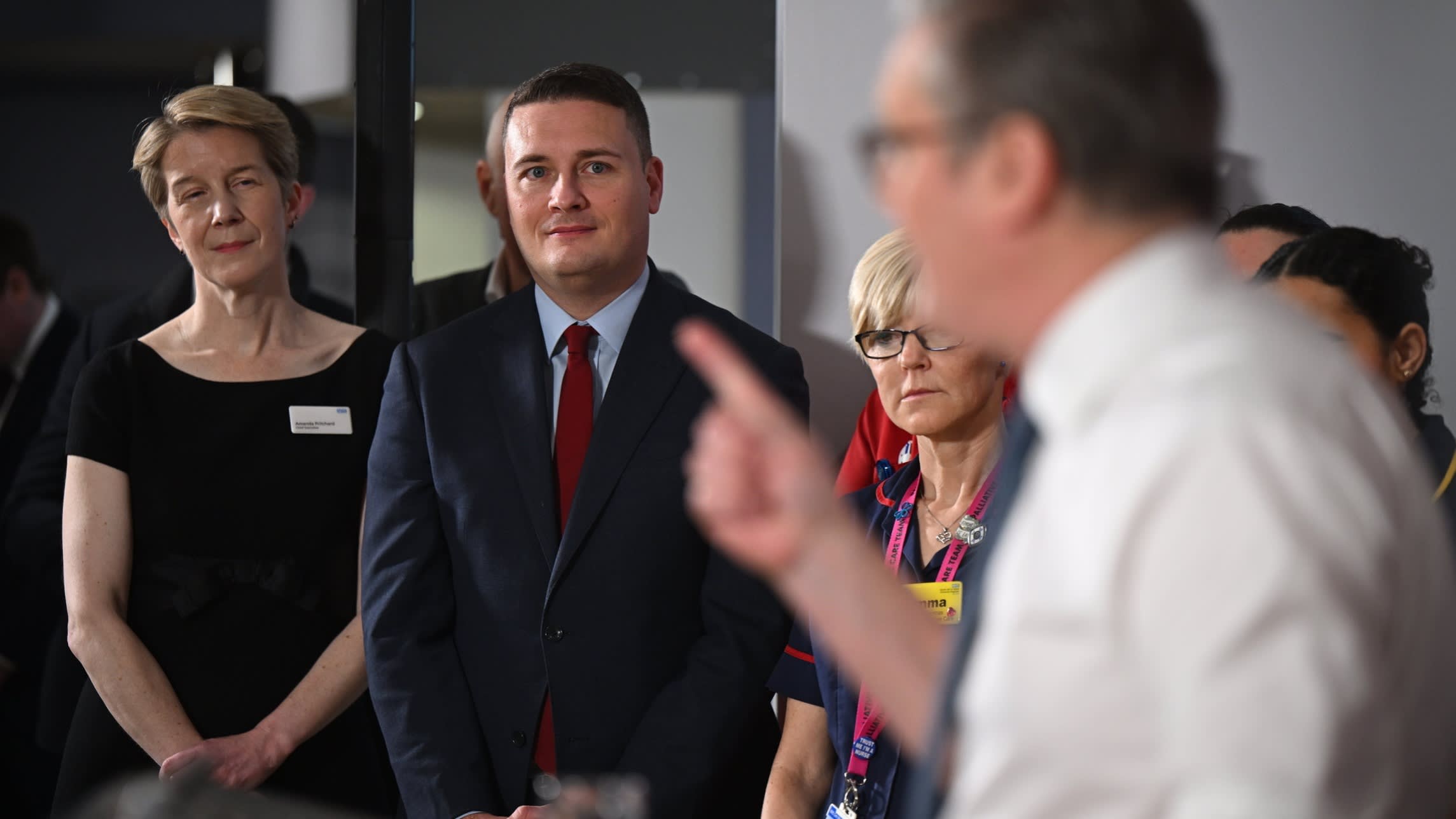
The Financial Times’ Stephen Bush is generally first-rate, so I was puzzled by his piece’s insistence that in the 2012 Act, “Andrew Lansley ripped up the internal market”.
Lansley really didn’t, though: not at all. Andy Burnham had a late shot at doing this in the tail-end of the Brown premiership with his proposal that the system should default to the NHS being the ‘preferred provider’.
I hardly need tell most readers that Lansley’s Act tried to supercharge the market, by handing control over the whole national NHS system in England to the NHS Commissioning Board and local control to the new clinical commissioning groups, enshrining the purchaser-provider spoilt of the NHS internal market in what Lansley hoped would be stone.
Dear old Lord Lansley truly believed that (patient) choice, competition and clinical commissioning would create a self-perfecting system, from which the Health Secretary could stand back. His belief was that for the NHS Commissioning Board to have more power in this way, the Health Secretary had to have less (these were more or less Lansley’s very words).
See for example the evidently-approved words of Monitor chief executive Dr David Bennett to The Times on competition.
Or legendary Health Minister Simon Burns’ words in a Newsnight interview on 19 January 2011, “It is going to be a genuine market. It is going to be genuine competition”.
Ahem. The stage at which the Lansley Three Cs of choice, competition and clinical commissioning reforms were thoroughly (albeit subtly) subverted came in 2014, when the NHS Commissioning Board’s new leader Simon Stevens published his ‘Five-Year Forward View’. This stepped decisively away from the rhetoric of competition, and moved towards system working.
Simon let this realisation leak out to the wider system over many years, but he did explicitly tell me in an interview in 2015, "our future lies in networks and health systems, not individual go-it-alone institutions ... a circle has to be squared here, between ensuring proper organisational autonomy and accountability; while also ensuring that the broader NHS acts more as a system. We need to be more than the sum of our parts.
"As I say, our future lies in networks and health systems; not individual go-it-alone institutions. On too many procurement and workforce issues it has felt the opposite of that. That’s going to change."
There’s a big irony here, in that this very same Simon Stevens was instrumental in some of the return of the internal market/New Public Management reforms of the 2000s Blair government. I wrote about the differences between Simon Stevens Mark One and Mark Two here.

The Sunday Times column by Centre for Policy Studies boss Robert Colvile is usually a fine read, too, and he understands NHS issues. I was surprised by this week’s insistence that “the NHS in England was run by a giant quango (NHS England), which in turn took direction from the Department of Health and Social Care.
The idea, at least in part, was to take the health service out of politics: to let NHS managers focus on managing, while the politicians held them to account. The problem, of course, is that the NHS can never be taken out of politics. Instead, all that happened was a succession of health secretaries butted heads, both in public and in private, with the quango over the river.”
It’s hard to do the complexity of the past fifteen years of health policy in 900-odd words, I admit, but this overview is an over-simplification.
From 2010 to 2013, we had two years of non-stop rows over the Lansley reform and a year-long move to the new NHS Commissioning Board-led system.
In 2014, a panicking Cameron and Osborne brought Simon Stevens in to handle all that difficult NHS stuff: there was actually very little butting of heads until 2016, as there was clearly a ‘Stevens Ask’ in the bank once it was felt that every possible economy had been made.

The 2016 Brexit vote came and went, and so did Cameron, Osborne and the Ask. There followed a period of butting of heads between Stevens and Theresa May’s inept advisors Fiona Hill and Nick Timothy, which the former won without getting out of second gear.
Colvile’s largely bought the Matt Hancock critique of NHS England, which was largely a result of his being constantly and easily outmanoeuvred by Simon Stevens. There are politicians with interesting observations to make about their tenure at health: as we saw in his IfG piece highlighted in last week’s column, The People’s Partridge is not among them.
I’m aware this is a lot of historical policy and political detail. But I’m not even slightly apologetic: those who don’t understand history are highly likely to repeat its worst mistakes.
Recommended and required reading
DHBSC and the BMA have agreed a new GP contract.
The FT’s Robert Shrimsley is a shrewd observer of politics, and his piece on the enduring ‘protect the NHS!’ narrative tendency is a timely warning.
Wes Streeting asserts to the Boris Johnson Fanzine that the NHS will not be ‘up for grabs’ in relation to any trade deal negotiation with the USA. Right … not a great choice of word, though, given President Trump’s rhetoric about grabbing.
Awful follow-up Sunday Times piece about a doctor from Nottingham University Hospitals’ experience of his baby dying in their maternity service.
Interesting long read in The Guardian about diagnostic creep.
The Boris Johnson Fanzine runs yet another credulous and unbalanced piece of NICE-bashing.









